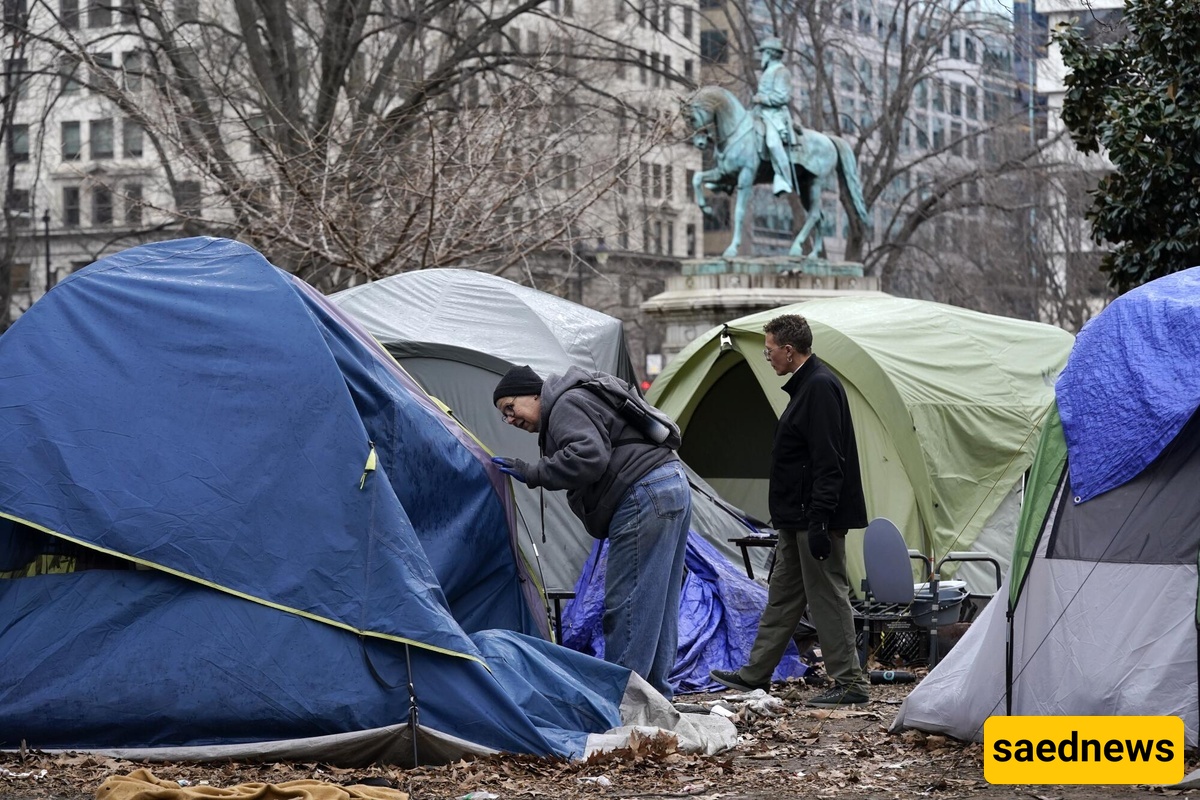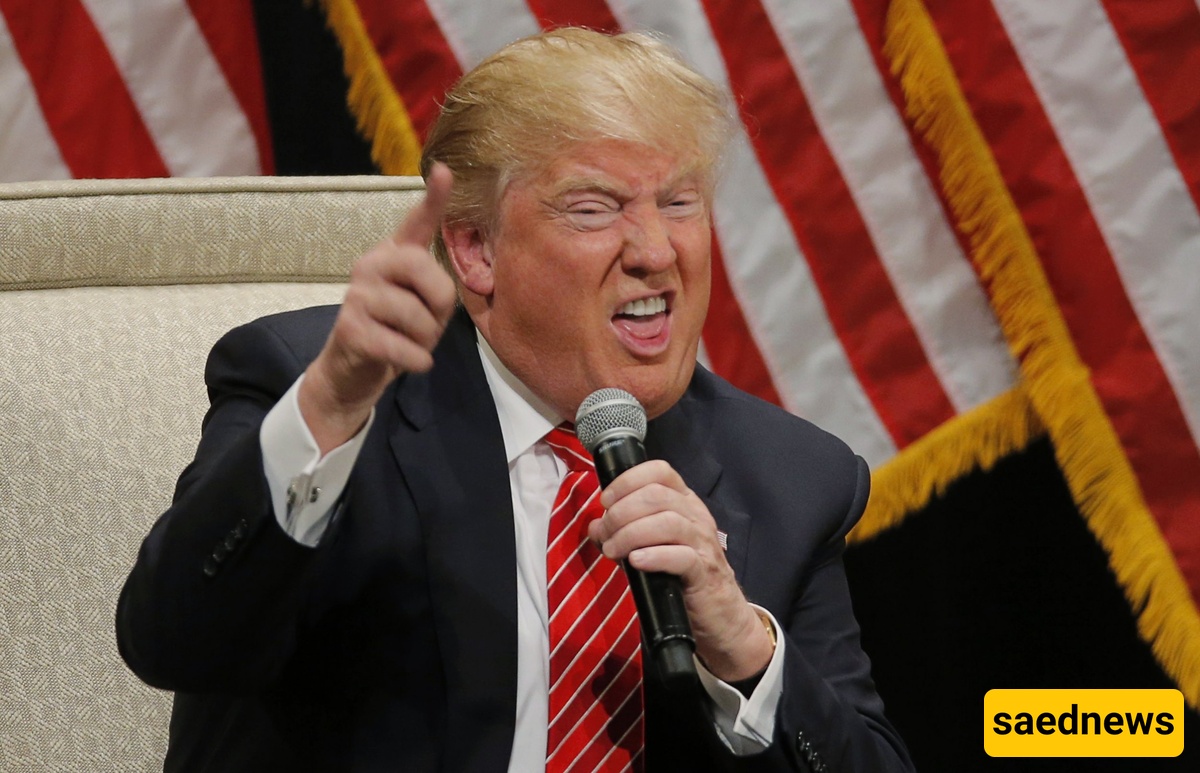SAEDNEWS: As the homelessness crisis in Washington reaches its peak, Donald Trump has promised to use coercive measures, including the possible deployment of the National Guard, to clear homeless people from the streets of the U.S. capital; a move that has sharply raised concerns about human rights violations and its social consequences.

According to Saed News, quoting Reuters, the homelessness crisis in the U.S. capital, Washington D.C., has reached such a level that Donald Trump’s administration has pledged to bring this issue under control through strict measures and even the use of National Guard forces. This decision, officially announced in recent days, has sparked widespread concern among human rights activists, civil institutions, and even local officials. While millions of Americans suffer from homelessness, the Trump administration’s strategy, emphasizing rapid and extensive eviction of street residents, has provoked extensive debates over human rights and practical solutions to the crisis.

The homelessness crisis in Washington is among the country’s most significant urban problems. Recent statistics indicate that over 6,000 people live without shelter in the city, with this number steadily increasing in recent years. The causes of this complex and multifaceted phenomenon include poverty, lack of affordable housing, mental health issues, and addiction. Experts emphasize that coercive measures only exacerbate the crisis and call for more comprehensive policies, social support, and long-term planning.
Under these circumstances, the Trump administration, adopting a different approach, has announced its intention to immediately and with the assistance of security forces—including the possible use of the National Guard—clear homeless people from sensitive areas of the capital. Official sources from the U.S. Department of Homeland Security have confirmed this and stated that the action aims to maintain public order, reduce crime, and create a safer environment for citizens. This news has been released while opponents have described the policy as “violent” and “inhumane,” warning that such measures could lead to forced displacement, increased suffering, and hidden homelessness.
Meanwhile, local officials in Washington D.C. have clearly opposed the use of military forces to address social issues. The mayor and city council members have repeatedly emphasized the need to assist this population through supportive programs, building more shelters, and providing health and psychological services—not through eviction and security pressure. However, efforts to negotiate with the federal government for a more humane approach have so far met with limited success.
Public reaction to this policy has been mixed. Some residents, particularly business owners and those concerned about security and sanitation, have welcomed the administration’s decision as a necessary step to restore order. In contrast, human rights activists, NGOs, and some media outlets have condemned the move as an example of unjust and oppressive policies that merely erase the problem’s appearance instead of addressing its root causes.
Urban and social experts warn that deploying military forces to tackle homelessness-related issues can have widespread negative consequences, including increasing tensions between street residents and law enforcement, heightening fear, reducing access to essential services, and worsening mental and social problems. They believe that without reforming support structures, such actions will only shift the problem to other areas.
Historically, the National Guard’s use in domestic U.S. affairs has been limited to emergencies such as natural disasters or civil protests. Its deployment in the context of homelessness is a novel and controversial case that could spark extensive debates about the government’s role in dealing with society’s most vulnerable groups. Some analysts view this decision as a sign of escalating security-military approaches to social problems.
On the other hand, the Trump administration claims that the current situation is “unbearable” and that widespread homelessness poses a threat to public safety and the city’s economy. They argue that without decisive and swift action, the crisis could have broader social and political consequences that spiral out of control. From their perspective, clearing sensitive areas of street residents will improve citizens’ quality of life and reduce the financial burden on social services.
With winter approaching, concerns about the homeless situation have intensified. Support organizations warn that forced displacement may restrict access to essential services such as temporary shelters, food, and medical care, putting many lives at risk. As a result, there have been widespread calls for increased funding for support programs and inter-agency cooperation.
From the perspective of international media, the Trump administration’s decision is portrayed as an example of America’s significant challenges regarding social justice and human rights. Many reports examine the deep-rooted causes of homelessness in the country, the inefficiency of previous policies, and the importance of more comprehensive approaches. They stress that the homelessness crisis requires sustainable solutions rather than short-term and security-based decisions.
Overall, Trump’s promise to evict the homeless and the potential use of the National Guard marks a turning point in Washington’s social crisis. This move not only reflects the severity of the crisis and the failure of previous policies but also raises major challenges related to human rights, urban policy, and the future management of social issues in the United States. As federal and local governments strive to find solutions, this decision could become a model for other U.S. cities or, conversely, provoke negative backlash and increase public distrust toward public policies.

